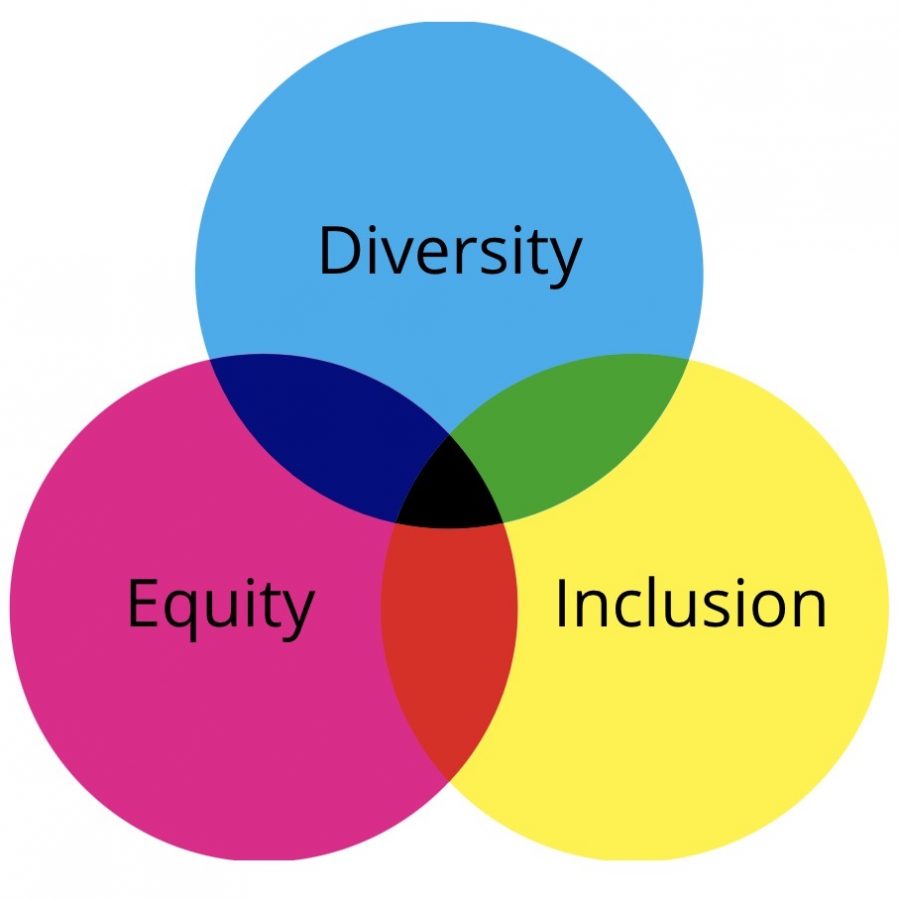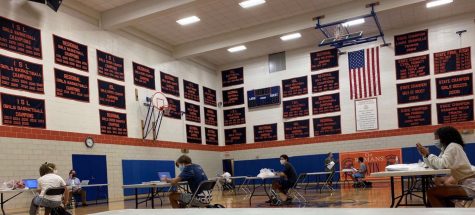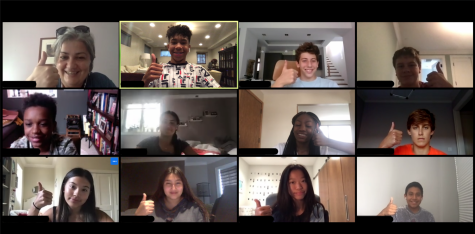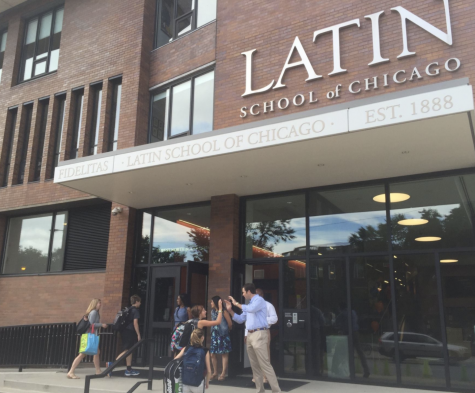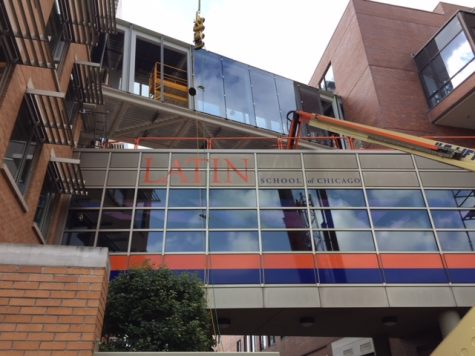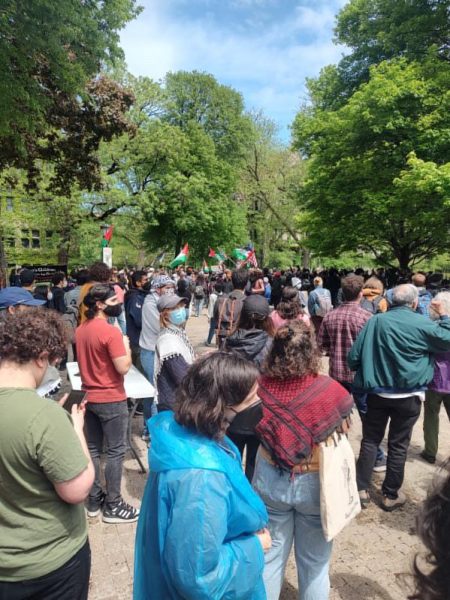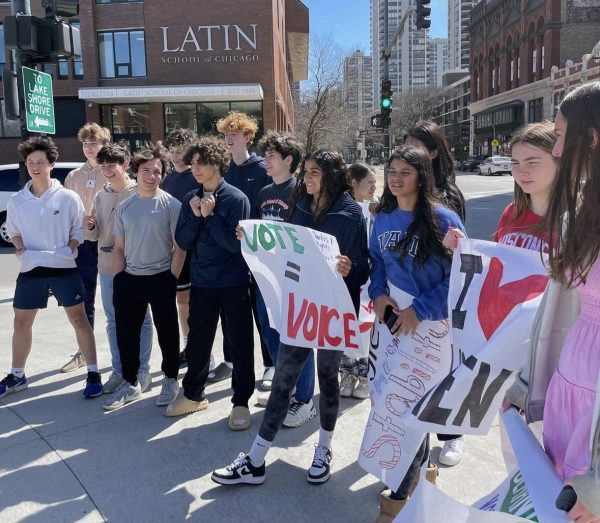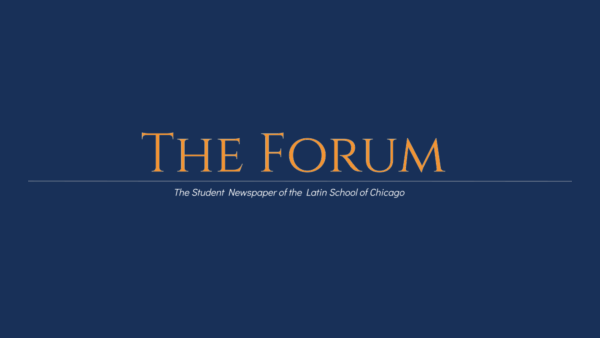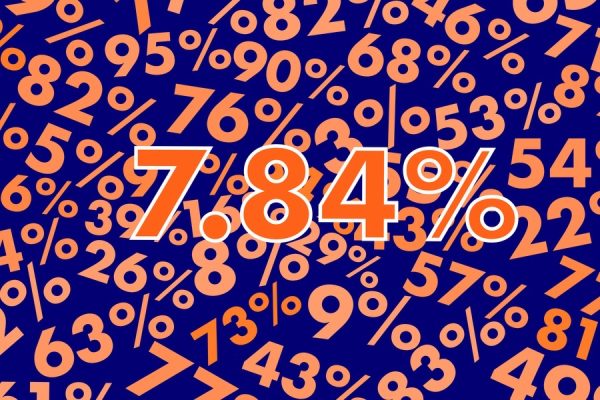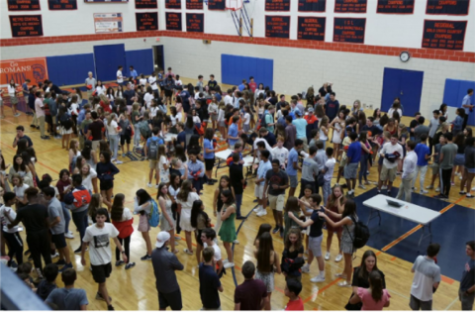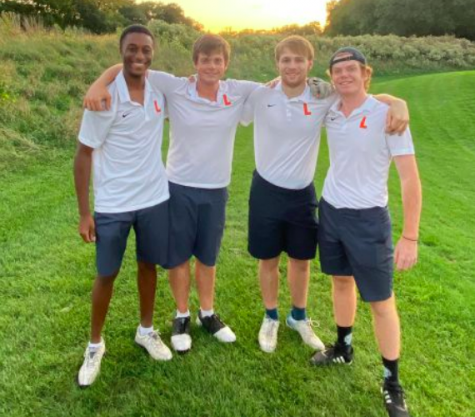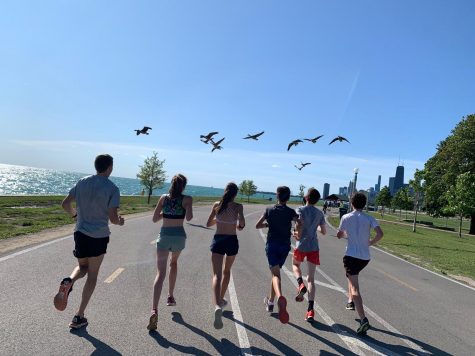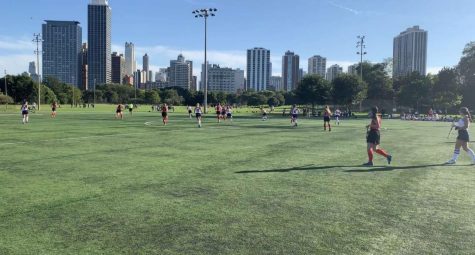Faculty addresses Survivors of Latin at September Gathering
In response to the issues brought to light by the Survivors of Latin Instagram account and other reports of bias within the Latin community, the Upper School held a gathering on September 4. Spearheaded by community leaders Suzanne Callis, Eleannor Maajid, Kate Lorber-Crittenden, and Brandon Woods, the gathering focused primarily on acknowledging the stories that have come out and introducing programs promoting diversity, equity, and inclusion that will take place throughout the year. Additionally, speakers described in detail the next steps toward building a safer and more informed learning environment for all students. They assured the student body that this was the first of many more conversations to come, underlining the importance of growing and healing as a community.
Before going into detail, the facilitators made it clear that the stories shared through the Survivors of Latin account should not be questioned, as doing so discredits the experiences of many people at the school. Ms. Maajid, Director of Diversity, Equity, and Inclusion, said, “We hear you, we validate you, and we are going to make those changes that need to be made.”
Ms. Maajid also reported the Institutional Diversity, Equity, and Inclusion (DEI) goals formed in response to the demands issued by Survivors of Latin and Demanding Accountability. “We heard the voices of our students, our alums, we heard from faculty and staff, we heard from parents and guardians, we heard from so many of the constituents in our school to actually make those goals, and we will be sharing those goals with you all in the next month,” she said.
It was then announced that, for the first quarter, there will be a clear focus on the role of language within the school: intent versus effect, how and why it can be harmful, and the like. As stated by Dean of Community Learning Ms. Callis, “Language is not the only thing that came out of these stories, but it’s the one that seemed most prevalent, and it felt like that was a good place to start for us as a community.”
Hate speech has always been prohibited at Latin, but students were clearly and directly reminded of that fact during gathering. Ms. L-C, Upper School Diversity Coordinator, went on to say that using hateful language as a joke will not be tolerated. “There are going to be times and places when you go out into the world and you will have the choice of thinking about how you use language,” she said, adding, “You don’t have to have a negative intention for there to be a negative impact or effect.”
After communicating the school’s zero-tolerance policy for hate speech, Upper School Diversity Coordinator Mr. Woods introduced the Incidents of Bias Report. Found on RomanNet, this report can be used to disclose any intentional or unintentional aggression against an individual or group’s identity. “The reason we came up with this protocol is to make sure we have a transparent and standardized way to address these issues,” Mr. Woods said. He explained that once a report is submitted, a committee—consisting of Upper School Director Kirk Greer, Assistant Upper School Director Karen Horvath, 9th and 10th Grade Dean Bridget Hennessy, 11th and 12th Grade Dean Joe Edwards, Upper School Counselors Ashly Lawrence and Jenny Stevens, Ms. Callis, Ms. Maajid, Ms. L-C, and Mr. Woods—will look over the report and determine the appropriate next steps. “The purpose of these reports is not punitive or vindictive,” he said. “This is a learning community, so we want to have protocols and practices where we’re focused on learning and helping people achieve the expectations that we have clearly laid out today.”
Despite assurances from faculty that Latin is trying to implement positive change within the community, sophomore Saniyah Davis said, “If the Survivors of Latin account was never made, these issues would’ve never been brought up, even though everybody knows the school is built on racism.” She also wondered if these efforts for an inclusive environment are sincere or if they are only taking place now that so many incidents have been publicly exposed.
Adding an extra day for affinities doesn’t change the racism; the racist people at school have to change for themselves
— Saniyah Davis '23
While some may not have been satisfied with the school’s effort to change the bias ingrained within it, Upper School English teacher Lang Kanai defended the new programs and protocols. “I know that faculty, staff, and admin have been deeply shaken by the Survivors of Latin account,” he said, “and that there is a genuine commitment to prioritizing a shift in the school’s culture. Whether or not the school is doing enough is going to be a matter of personal opinion, but I really do believe that the school is doing its best to listen, heal, and find a way forward.” He also pointed out that change has to come from everyone in the community. “We all have an individual responsibility to challenge ourselves, learn, and grow. It’s a process.”
Madison Seda, a senior who spoke at the protest for Demanding Accountability, said she thinks that the school is headed in the right direction but that there is still a great deal of work to be done. “They seem to really be focusing on language at Latin and how saying certain slurs and offensive jokes/terms should never have been normalized, and are working to reverse that,” she said. “I don’t think Latin, or any school for that matter, can completely rid the student body of bias and sway everyone’s opinion about something, but educating students on important topics is key and will hopefully lead to more open-mindedness and compassion.
With the … expulsions over the summer, I’m a little concerned that Latin and the administration tried proving a point and went with the most extreme method of repercussions
— Madison Seda '21
However, Madison expressed her apprehension about how the school handled the discipline of three former students. “With the expulsions of [several] students over the summer, I’m a little concerned that Latin and the administration tried proving a point and went with the most extreme method of repercussions,” she said, adding that in that particular situation, expulsion may have been the best decision, but that it is not always the only option. “I don’t know how Latin will handle these situations when they occur, as I don’t think expulsion can be the immediate reaction, especially when racism and homophobia is so common,” she said.
To close the meeting, Ms. Callis summarized the changes that have already been made. Affinity groups will now meet twice a cycle, and conversations surrounding DEI will continue in advisory with the help of student government, the Student Diversity and Equity Committee, and the Identity Coalition for Latin. “Faculty and staff did some summer work around DEI, and they are going to continue to do work around DEI,” she said. “We are having these conversations as adults in the community as well, but we do want to make sure we are also having those conversations as an entire community.”






































